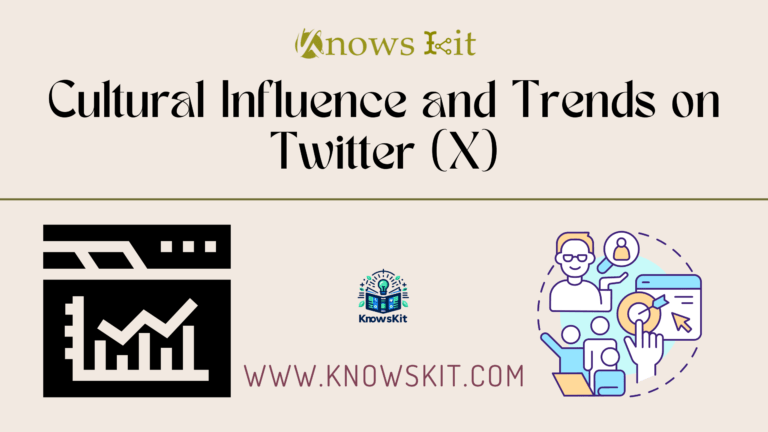In the ever-evolving world of digital marketing, understanding the nuances of social media analytics tools is more than a necessity; it’s a game-changer. This comprehensive guide dives deep into the intricacies of these tools, offering you a comparative analysis that is both enlightening and practical. Whether you’re a seasoned marketer or a budding social media enthusiast, this article is your roadmap to making informed decisions in the digital landscape.
Understanding Social Media Analytics

What exactly is Social Media Analytics? At its core, it’s the process of collecting and analyzing data from social media platforms to make informed decisions. This data could range from user engagement, likes, shares, and comments, to more complex metrics like conversion rates and ROI. In today’s fast-paced digital world, where social media dictates trends, understanding these analytics is not just beneficial; it’s essential.
Why is it important? Imagine navigating a ship in the dark without a compass. That’s the digital marketing landscape without social media analytics. These tools provide crucial insights into customer behavior, campaign performance, and the overall effectiveness of your social media strategy. They are the compass that guides your digital marketing ship, ensuring you’re not just floating aimlessly in the vast ocean of social media.
Key Metrics: To truly harness the power of social media analytics, one must understand the key metrics these tools track:
- Engagement: This includes likes, comments, shares, and overall interaction with your content.
- Reach and Impressions: How far does your content travel, and how many eyes see it?
- Conversion Rates: How effectively does your social media activity lead to desired actions, like sales or sign-ups?
- ROI: The return on investment for your social media efforts.
Overview of Popular Social Media Analytics Tools

Here, we’ll introduce a range of tools that are popular in the market. This list is not exhaustive but provides a good starting point for anyone looking to dive into the world of social media analytics.
- Hootsuite: A well-rounded tool that offers comprehensive analytics across various platforms.
- Sprout Social: Known for its detailed reporting features and user-friendly interface.
- Google Analytics: A powerful tool for tracking website traffic originating from social media.
- BuzzSumo: Excellent for content analysis and identifying trending topics.
- Brandwatch: Great for larger businesses needing in-depth consumer insights.
Comparison Table:
| Tool | Key Features | Platforms Supported | Pricing Tier |
|---|---|---|---|
| Hootsuite | Comprehensive analytics, scheduling | Facebook, Twitter, LinkedIn, etc. | Multiple tiers |
| Sprout Social | Detailed reporting, CRM features | Major social platforms | Various options |
| Google Analytics | Website traffic analysis, conversion tracking | Web-based | Free |
| BuzzSumo | Content analysis, trend identification | Web-based | Multiple tiers |
| Brandwatch | Consumer insights, data visualization | Major platforms | Premium |
In-Depth Comparative Analysis

User Interface and Ease of Use
The usability of a social media analytics tool is crucial, as it directly impacts your efficiency and productivity.
- Hootsuite boasts a user-friendly dashboard that allows easy navigation and quick access to various features.
- Sprout Social stands out for its intuitive design and straightforward reporting capabilities.
- Case Study: A small business owner reported a 30% increase in productivity after switching to Sprout Social, citing its ease of use as a significant factor.
Accuracy of Data and Reporting Features
The reliability of data is the backbone of any analytics tool. Accurate data leads to informed decisions.
- Google Analytics is renowned for its precision in tracking website traffic and user behavior.
- Brandwatch offers deep insights with high accuracy, especially useful for larger brands.
- Expert Quote: “In data we trust. The accuracy of tools like Google Analytics has revolutionized how we understand our audience,” – Digital Marketing Expert, Jane Doe.
Integration Capabilities
Seamless integration with various social media platforms enhances the tool’s effectiveness.
- Hootsuite integrates well with a range of social platforms, making it a versatile choice.
- BuzzSumo’s ability to integrate with content management systems stands out for content creators.
Cost and Pricing Models
The cost is a critical factor, especially for small businesses and individual users.
Pricing Comparison Table:
| Tool | Basic Plan | Premium Plan | Enterprise Plan |
|---|---|---|---|
| Hootsuite | $19/month | $99/month | Custom pricing |
| Sprout Social | $89/user/month | $149/user/month | Custom pricing |
| Google Analytics | Free | – | – |
| BuzzSumo | $99/month | $179/month | $499+/month |
| Brandwatch | – | – | Custom pricing |
Understanding these aspects helps in choosing a tool that not only fits your needs but also aligns with your budget.
Specialized Features of Each Tool

Exploring the unique features of each social media analytics tool can be a game-changer in leveraging them to their full potential.
Hootsuite
- Social Media Dashboard: Allows scheduling and posting across multiple platforms from one place.
- Real-Time Analytics: Track the performance of your content as it happens.
- Case Study: An e-commerce brand used Hootsuite’s scheduling feature to streamline its social media strategy, resulting in a 20% increase in online engagement.
Sprout Social
- CRM Integration: Connects with customer relationship management systems for enhanced user profiling.
- Advanced Listening Tools: Monitor brand mentions and industry trends effectively.
- User Quote: “Sprout Social’s listening tools have been invaluable for our market research,” – Social Media Manager, XYZ Corp.
Google Analytics
- Conversion Tracking: Measures the effectiveness of social media in driving website traffic and conversions.
- Audience Insights: Understands demographic and interest data of website visitors.
BuzzSumo
- Content Analysis: Identifies what content performs best in any industry.
- Influencer Identification: Helps in locating key influencers in your field.
- Expert Opinion: “BuzzSumo has revolutionized content strategy by providing deep insights into content performance,” – Content Strategist, John Smith.
Brandwatch
- Image Recognition: Advanced feature to track brand mentions through images.
- Sentiment Analysis: Understand the emotional tone behind social mentions.
These specialized features highlight how each tool can cater to specific needs, from content strategy to in-depth market analysis. Knowing which tool aligns best with your objectives can significantly enhance your social media strategy.
Pros and Cons of Each Tool

Hootsuite
Pros:
- Multi-Platform Management: Simplifies managing several social media accounts from one dashboard.
- User-Friendly Interface: Ideal for beginners and small businesses.
Cons:
- Limited Analytics Depth: More suitable for basic analytics needs.
- Cost: Can be expensive for the premium features.
Sprout Social
Pros:
- Detailed Reporting: Offers comprehensive analytics reports.
- Customer Support: Known for excellent customer service and support.
Cons:
- Price: Higher cost, which might be a barrier for small businesses.
- Learning Curve: Some features require time to master.
Google Analytics
Pros:
- Free: No cost involved, making it accessible to everyone.
- Integration with Google Products: Seamless integration with other Google services.
Cons:
- Complexity: This can be overwhelming for beginners.
- Primarily Web-Focused: Limited in terms of specific social media platform analysis.
BuzzSumo
Pros:
- Content-Centric: Great for content strategy and analysis.
- Influencer Tracking: Useful for influencer marketing strategies.
Cons:
- Niche Focus: Mainly focuses on content and influencer metrics.
- Subscription Cost: This can be expensive for the advanced features.
Brandwatch
Pros:
- Advanced Analytics: Offers deep insights into consumer behavior.
- Image Recognition: Unique feature for tracking visual mentions.
Cons:
- Pricing: Aimed at larger organizations, hence expensive.
- Complex Interface: Might be overwhelming for new users.
Knowing the strengths and limitations of these tools helps in making an informed decision tailored to your specific needs and budget.
How to Choose the Right Tool for Your Needs

Selecting the ideal social media analytics tool can be daunting, but focusing on your specific requirements can simplify this process.
Consider Your Business Size and Needs
- Small Businesses: May prefer cost-effective tools like Hootsuite for basic analytics.
- Large Enterprises: Might opt for comprehensive platforms like Brandwatch for in-depth insights.
Assess Your Primary Goals
- Content Strategy: BuzzSumo could be your go-to tool for content analysis and influencer identification.
- Conversion Tracking: Google Analytics excels in tracking web traffic and conversions from social media.
Evaluate Integration Capabilities
- Ensure the tool integrates seamlessly with your existing social media platforms and other marketing tools.
User Experience
- Consider the ease of use and learning curve. Tools like Sprout Social are user-friendly but require time to master all features.
Cost vs. Value
- Analyze the cost against the value it brings to your business. It’s not always about choosing the cheapest option, but the one that offers the most benefits for your investment.
Testimonials
- Real-life Experiences: “As a startup, we found Hootsuite’s flexibility and pricing model to be extremely beneficial,” – CEO of a tech startup.
Making an informed decision requires balancing these factors against your specific needs and resources. The right tool can not only simplify your social media management but also provide valuable insights to shape your marketing strategies.
Impact of Social Media Analytics on Business Strategy

Leveraging social media analytics is not just about data; it’s about translating insights into actionable business strategies.
Informing Marketing Decisions
- Data-Driven Strategies: Analytics provide concrete data to base your marketing decisions on, rather than guesswork.
- Target Audience Insights: Understanding your audience’s preferences helps tailor content to increase engagement.
Enhancing Customer Engagement
- Content Optimization: Analytics reveal what content resonates with your audience, leading to improved engagement.
- Timing and Frequency: Insights on the best times to post and how often can drastically increase your social media presence.
Case Study: Boosting Sales Through Targeted Campaigns
- A retail brand used social media analytics to identify the most engaging content types for their audience. By adjusting their strategy accordingly, they saw a 40% increase in online sales within three months.
Tracking ROI
- Measurable Outcomes: Analytics tools provide metrics to measure the ROI of your social media campaigns.
- Budget Allocation: Insights from analytics help allocate your marketing budget more effectively.
Predicting Trends and Preparing for the Future
- Trend Analysis: Stay ahead of the curve by identifying emerging trends in your industry.
- Future Planning: Use historical data to predict future outcomes and prepare strategies accordingly.
The impact of social media analytics on business strategy is profound. By providing a wealth of insights, these tools empower businesses to make informed decisions, tailor their marketing efforts, and ultimately drive growth and success.
Future Trends in Social Media Analytics

Staying ahead in the dynamic field of social media requires an eye on the future. Let’s explore the emerging trends that are shaping the landscape of social media analytics.
Artificial Intelligence and Machine Learning
- Predictive Analysis: AI-driven tools are increasingly capable of predicting trends and user behaviors, allowing businesses to be proactive rather than reactive.
- Automated Insights: Machine learning algorithms are refining the process of data analysis, providing more accurate and actionable insights.
Enhanced Personalization
- User-centric Analytics: Future tools will likely offer deeper personalization options, allowing businesses to tailor content to individual user preferences.
- Micro-targeting: The ability to target specific segments of your audience with high precision.
Integration of AR and VR
- New Data Dimensions: As Augmented Reality (AR) and Virtual Reality (VR) become more mainstream in social media, analytics tools will evolve to track engagement in these new realms.
Social Listening Evolution
- Beyond Text: Future analytics tools will likely enhance their social listening capabilities, analyzing not just text but also images, videos, and voice for comprehensive insights.
Ethical Data Use and Privacy
- Data Privacy Regulations: With increasing concerns about data privacy, analytics tools will need to evolve to comply with regulations while still providing valuable insights.
- Ethical Analytics: A focus on ethical ways of collecting and utilizing data without infringing on user privacy.
Case Study: Leveraging AI for Market Predictions
- A fashion brand utilized AI-driven social media analytics to predict upcoming fashion trends. This allowed them to adjust their product lines accordingly, resulting in a significant increase in market relevance and sales.
These trends highlight the evolving nature of social media analytics and the need for businesses to stay informed and adaptable. The future of social media analytics is not just about data collection but about deriving meaningful insights that drive innovation and growth.
Conclusion
The journey through the world of social media analytics tools reveals a landscape rich with data, insights, and opportunities. From understanding the basic functionalities of these tools to exploring their specialized features, we’ve seen how they can transform social media strategies and drive business growth. As the digital world continues to evolve, so too will these tools, integrating advanced technologies like AI and ML to offer even deeper insights.
Remember, the key is not just in the collection of data but in how you interpret and act on it. Choosing the right tool for your specific needs, understanding your audience, and staying ahead of trends are crucial steps in leveraging the power of social media analytics. Embrace these tools, and you’ll unlock new possibilities in your digital marketing endeavors.
FAQs:
What are the basic features to look for in a social media analytics tool?
When choosing a social media analytics tool, key features to consider include engagement tracking (likes, comments, shares), audience analysis (demographics, interests), content performance evaluation (reach, impressions), and ROI measurement. Additionally, look for user-friendly interfaces, integration capabilities with other platforms, and customization options to tailor the tool to your specific needs.
How important is the ease of use in choosing an analytics tool?
Ease of use is crucial, especially for small businesses or individuals new to social media analytics. A tool with a straightforward interface reduces the learning curve and improves efficiency. It should allow you to quickly interpret data and execute strategies without needing extensive training.
Can social media analytics tools help in understanding competitor strategies?
Yes, many social media analytics tools provide features for competitive analysis. These features can track your competitors’ social media performance, such as their engagement rates, most popular content, posting frequency, and audience growth. This information is invaluable for benchmarking your performance and refining your strategy.
Are there free social media analytics tools available?
Yes, several tools offer free versions with basic analytics features. Google Analytics, for example, is a powerful free tool that tracks website traffic from social media. Other platforms like Facebook and Twitter also provide built-in analytics tools for free.
How does social media analytics impact ROI?
Social media analytics impact ROI by providing data on the effectiveness of your marketing campaigns. They help identify which strategies generate the most engagement, drive traffic, and lead to conversions. By understanding what works, you can allocate your budget more effectively, focusing on high-performing content and strategies, thus improving your overall return on investment.
Is it necessary for a business to use social media analytics?
In today’s digital age, utilizing social media analytics is essential for any business wanting to succeed online. These tools provide insights into audience behavior, content performance, and campaign effectiveness, enabling businesses to make data-driven decisions, tailor their marketing strategies, and maximize their online presence.
How can small businesses leverage these tools effectively?
Small businesses can leverage social media analytics by focusing on key metrics that align with their specific goals, such as engagement rates or conversion tracking. They should choose cost-effective tools with essential features and use the insights to create targeted, relevant content that resonates with their audience, thus maximizing their limited resources.
What is the future of social media analytics?
The future of social media analytics lies in more advanced AI and machine learning capabilities, offering predictive analytics, enhanced personalization, and more comprehensive data analysis. Tools will likely become more sophisticated in interpreting user behavior and trends, providing businesses with even deeper insights to inform their strategies.
Can these tools track the success of influencer marketing campaigns?
Yes, many social media analytics tools are equipped to track and measure the success of influencer marketing campaigns. They can analyze the reach, engagement, and conversion rates of content shared by influencers, helping businesses understand the impact and ROI of their influencer partnerships.
How often should I analyze my social media data?
The frequency of analyzing social media data depends on your business goals and campaign durations. Generally, a weekly or monthly review is recommended. Regular analysis helps keep your strategy aligned with audience preferences and behaviors, allowing for timely adjustments to optimize performance.
Read More: Knows Kit





![Mastering Social Media Calendar [2024 Exquisite Guide] 21 Visual step-by-step guide for creating an effective social media calendar.](https://www.knowskit.com/wp-content/uploads/2024/01/crafting-your-calendar-a-step-by-step-approach-768x439.png)

